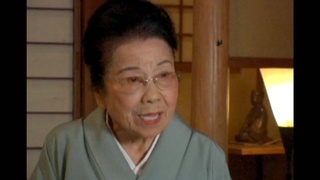Interviews
Controversy over the film
Yes, there was a controversy. It was Frank Chin because at that time, you know, if you look back politically, there was this…this was when our fists were raised. This is where we were becoming, “Hey, we’re going to speak out” you know, and…especially for young men. Because I think Asian men really had really a rough time. They really did. They wanted to show their masculinity and that they weren’t going to take it laying down and all this kind of thing.
And what Frank Chin objected to, I think basically, was that he would like to have directed the film. One of the reasons that…and he thought that the film was not vocally strident enough. In other words, he wanted to say, “Why didn’t you beat up…why didn’t you show them beating up the Japanese outside the theater?” – that scene. I said, “Hey, do you want to have a bunch of Japanese people beat up? Because that’s what happens when you show those images. People reproduce them.” I mean whenever you have violence on television it’s going to be reproduced and what does that serve? You know that it was terrible. He said, “This was too wimpy” for him. And it probably is for him because he writes a very…he’s a great writer. Unfortunately, he just can’t give anybody else credit for how they want to write or how they want to show their creativity.
So he did a really dirty trick. What he did is he wrote to the New York Times and he wrote a letter saying that he thought this film was racist and that he didn’t want his name – he was an extra – he didn’t want his name connected with this film at all. And he wrote that and they printed it because they thought that he wrote the screenplay because they saw him as Frank Chin, the writer. And so that hurt. That really hurt John a lot. I mean in terms of not only emotionally. Here, he was bending – he thought – bending over backwards to be sensitive. But it was just a political thing and at that time, Edison Uno, who was so wonderful and he was our consultant – he said, “Look, they’re going to use this as a political football because any…they can get on top of it…”
My feeling is now that…I mean I feel sad because he liked the book because it was a strong Asian male. He liked that and that’s why he never badmouthed the book. But the film – I don’t know what it was. They were in it. Just didn’t like that Corty did it, I think.
Date: December 27, 2005
Location: California, US
Interviewer: John Esaki
Contributed by: Watase Media Arts Center, Japanese American National Museum


